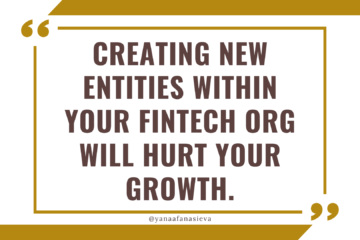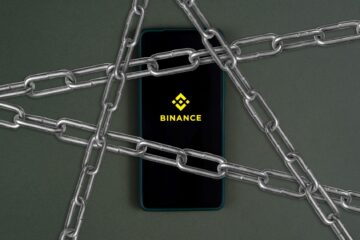Most Popular and Valuable Tokens Are Not Issued By DAOs – Why?
I’d like to revisit the topic of DAOs and share with you my ideas on whether or not DAOs add value to the token and what are the most common misconceptions about the DAOs.
Here are the use cases behind some of the most popular DAOs (good or bad):
Governance structure for a single project. If you ask me, none of the projects listed within this category are truly decentralized, but for the sake of the argument, here are the most successful ones:
-
- Uniswap: Uniswap DAO manages one of the most successful DEXes and makes decisions about its future development.
-
- MakerDAO: MakerDAO is a decentralized protocol managing DAI, a stablecoin pegged to the US dollar.
-
- Compound and Aave: Both are decentralized lending protocols allowing users to lend and borrow cryptocurrencies. The DAOs behind them are responsible for managing the protocols and ensuring that they remain secure.
Crowdfunding and pooled investments (including investments into NFTs). These DAOs can be used to crowdfund projects and pooled investments.
-
- FlamingoDAO is an example of a DAO that collects and invests in NFTs. The DAO’s collection at some point included some of the most valuable NFTs in the world, such as CryptoPunks and Bored Apes.
-
- The DAO, an organization that was designed to be a decentralized blockchain-based venture capital fund, was hacked as a result of the code vulnerability in 2016, and $60 million worth of ETH was stolen. A somewhat similar story happened in 2022 to the Popsicle Finance DAO in 2021.
DApp governance and decision-making DAOs can be used to govern technical governance around decentralized applications (dApps), providing a way for users to participate in decision-making. In general, these DAOs can be used to execute proposals, providing a way to automate tasks, count votes, allocate budgets, distribute rewards, onboard new members, and ensure that they are carried out in a transparent and efficient manner. (I personally could not find any credible examples for this, but let’s hope they exist). Perhaps, Axie Infinity DAO could be attributed to this category, but it could also be a community DAO.
Community engagement and activism. The idea here is to create decentralized communities, providing a way for users to own and manage their virtual spaces, address social issues, or fund philanthropic causes.
-
- One of the most famous examples is the ConstitutionDAO which raised $40 million to purchase a copy of the US Constitution. The DAO was unsuccessful but it showed what’s possible.
-
- Friends with Benefits community DAO.
What are the most common problems with DAOs?
-
- The most common issues with DAOs are (by far) their security vulnerability and founding team abuse.
-
- DAOs are complex and difficult to manage. I have recently seen so many debates about the DAO governance that did not lead anywhere. It felt like the time would be much better spent working on technology and product-market fit. A side problem arising from this complexity is that DAOs can be difficult to scale, especially at the later stage, when they require a large number of participants to function effectively.
-
- DAOs are not always democratic, decentralized, or transparent. Very often, especially in the beginning, DAOs are controlled by a small group of individuals, and it leads to a lack of transparency and accountability.
-
- DAOs may not be legally recognized (either way). The legal status of DAOs is still unclear in many jurisdictions. In some cases, DAOs can be treated as legal entities (which may trigger licensing or registration requirements). In other cases, the contracts involving DAOs could be difficult to conclude or enforce contracts or resolve disputes involving DAOs.
How the DAO will add value to the token? I am yet to see a project where the existence of the DAO added real value or helped the team achieve its goals. The three most common goals that the founders have in mind when creating the DAO are:
-
- DAO will provide a better framework for project governance. I personally have not seen any evidence for that to be the case.
-
- DAO will add the value to the token. (Just look at the most traded tokens with the largest market cap – they rarely involve DAOs)
-
- DAO will help to avoid regulatory requirements to obtain licensing and other permissions (we have plenty of evidence to the contrary)
What is the “right governance model”? There are 3 most popular governance models used by DAOs:
-
- Direct democracy, where all members of the DAO have equal voting rights. A variation of that is quadratic voting.
-
- Delegated democracy, where members of the DAOs elect representatives who then vote on their behalf. A variation of that is a holographic consensus.
-
- Liquid democracy is a structure where members can delegate their voting powers depending on the issue.
To be very honest (and it is my humble opinion), most of these voting frameworks can work, however, I am personally still not convinced that any of these options would make a real difference. I personally view the concept of the DAO as a regulatory experiment in its very early stage of evolution. For smaller projects, just getting off the ground, I would say that the creation of the DAO and making decisions around the DAO governance are more likely to become a distraction rather than help.
What’s your take on the DAOs? How do you see them evolving in the near future?
Don’t miss this fresh episode on the Compliance That Make Sense podcast today! Listen now!
P.S. Did you know that I am regularly adding new templates and training to the Fintech Compliance Templates Library? It includes FinTech Compliance Self-Starter Package with new FinTech license application templates, such as a regulatory business plan, organizational design plan, and templates for creating financial projections! Have a look here!





